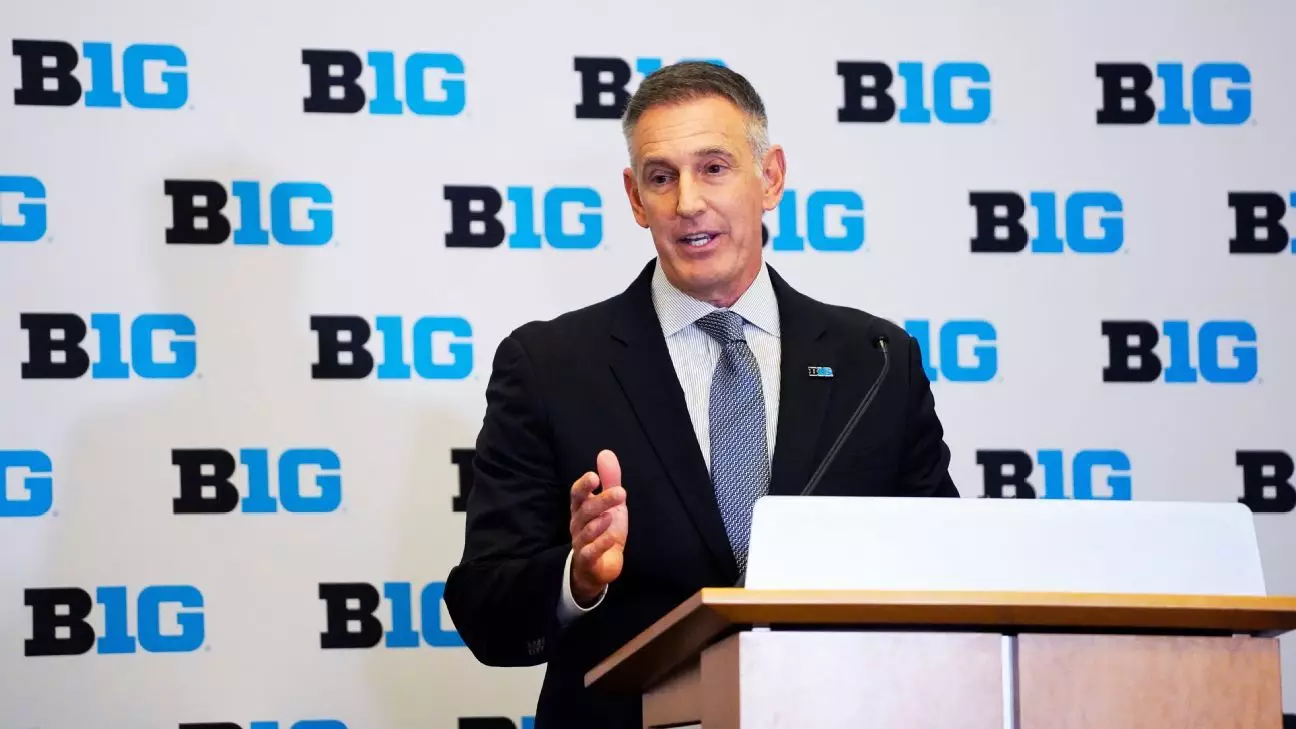The recent decision by the Big Ten to suspend Jim Harbaugh, the head coach of the University of Michigan’s football program, for the remainder of the regular season has sparked widespread controversy and debate. In a series of documents released on Friday afternoon, the Big Ten outlined its rationale for this punishment, shedding light on the decision-making process that led to such a significant penalty. The 13-page letter addressed to Michigan officials, authored by Big Ten commissioner Tony Petitti, provides valuable insights into the league’s perspective on this matter.
One of the key allegations presented in Petitti’s letter is the existence of an “organized, extensive, years-long in-person advance scouting scheme that was impermissible.” This sign-stealing scheme, allegedly orchestrated by former Michigan staffer Connor Stalions, is portrayed as a grave violation of the league’s sportsmanship policy. These words paint a damning picture of Michigan’s actions, emphasizing the severity of their transgressions.
Petitti further supports the Big Ten’s decision by highlighting the evidence gathered by the NCAA, which has been corroborated by other conference members. According to the letter, a significant portion of the violation has already been “proven,” although the specifics regarding scope, intent, and individual knowledge are yet to be determined. This disclosure raises questions about the extent of Michigan’s involvement in the sign-stealing scheme and presents a compelling case for additional penalties.
Petitti emphasizes the need for fairness and the preservation of the integrity of competition throughout his letter. He argues that competition solely focused on winning, while disregarding the rules of fair play, undermines both the institutions involved and the sport itself. This sentiment underscores the Big Ten’s commitment to upholding the principles of fair competition and justifies the harshness of the punishment.
Michigan President Santa Ono strongly criticized Petitti’s “rush to judgment” and accused him of bowing to pressure from other conference schools. Ono claimed that the timing of the decision was intended to hamper Michigan’s chances in court, expressing concern about impartiality on the part of the commissioner. However, Petitti defends the Big Ten’s actions, highlighting Michigan’s failure to deny the existence of the impermissible scheme and suggesting that the school’s arguments are nothing more than attempts to delay accountability.
The letter reveals that the NCAA first initiated the investigation into Michigan’s actions, raising concerns about the seriousness of the matter. Petitti recounts videoconferences with the NCAA during which he viewed evidence, including a “master spreadsheet,” that incriminated Stallions and his network of accomplices in the sign-stealing scheme. The conference also obtained additional information from other member schools, further corroborating the evidence provided by the NCAA. These details paint a coherent picture of Michigan’s involvement in the scheme and justify the swift action taken by the Big Ten.
Michigan argued that the Big Ten disregarded due process and should have awaited the conclusion of the NCAA investigation before imposing any sanctions. In response, Petitti counters that the league’s sportsmanship policy grants him wide discretion to act independently, regardless of ongoing NCAA investigations. He asserts that the league’s authority to ensure the integrity of competition takes precedence over other considerations.
Michigan and Harbaugh’s attorneys contended that other schools engaged in similar sign-stealing schemes, suggesting that the punishment meted out to Michigan would set a troublesome precedent. However, Petitti rebuts these claims, stating that the Big Ten has not received any information about other schools engaging in similar behavior to the same degree as Michigan. He pledges to take appropriate action if such information is brought to the conference’s attention. Additionally, Petitti raises concerns about player safety, positing that Michigan’s sign-stealing scheme introduced an elevated risk of injuries among opposing players.
The Big Ten’s decision to punish the University of Michigan and Jim Harbaugh is based on a comprehensive review of the evidence gathered by both the NCAA and conference members. The league’s commitment to fairness and the integrity of competition justifies the severity of the punishment. While Michigan and its president question the timing and motives behind the decision, Petitti’s letter provides a persuasive argument for the Big Ten’s actions. As this controversy continues to unfold, it remains to be seen how Michigan will respond and whether their pursuit of legal recourse will yield any success.


Leave a Reply